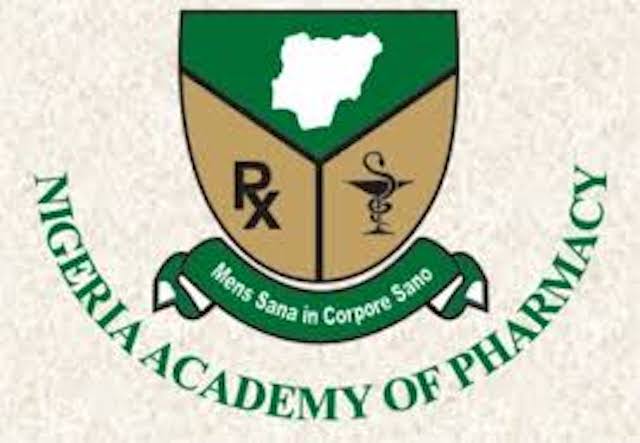The Nigeria Academy of Pharmacy has urged deeper collaboration among researchers, policymakers, and industry leaders to fast-track pharmaceutical innovation and strengthen national development. The call was made during the Academy’s 2025 Investiture and Public Lecture held in Lagos, which focused on how scientific progress and innovation can transform Nigeria’s health and manufacturing sectors.
In a statement issued after the event, the President and Chairman of the Governing Council of the Academy, Professor Lere Baale, said Nigeria must build a stronger pharmaceutical ecosystem by aligning research, regulation, and industry interests. According to him, innovation in the pharmaceutical space goes beyond science—it is about leadership, governance, and national responsibility.
“We need to reduce dependence. We must be independent,” Baale said. “Many elites must be brave enough to help this country. Pharmaceutical innovation is not just science; it is governance, business, and above all, nation building.”
The public lecture, themed “Pharmaceutical Innovation and Nation Building,” attracted pharmacists, academics, health regulators, and government officials from across the country. Participants discussed practical steps to make Nigeria more self-reliant in medicine production and to reduce dependence on imported drugs.
Baale, who also serves as President of the Nigerian School of Pharmacy and the CU Business School of the Netherlands, shared his personal journey in the industry and the lessons it taught him. “When I started, I had to go to places like Ajegunle to sell products. Now I know better,” he said. “The world is changing—India has become the pharmacy of the world, Rwanda is building its own pharmaceutical capacity. Nigeria must also rise to the challenge.”
In her remarks, the Director-General of the National Agency for Food and Drug Administration and Control (NAFDAC), Professor Mojisola Adeyeye, said Nigeria has made progress in strengthening its pharmaceutical regulatory system. She disclosed that the country now boasts two World Health Organisation (WHO)-prequalified medicine manufacturers and one WHO-prequalified medical device company.
Adeyeye said, “Without academia, we cannot achieve research and development. At NAFDAC, many of our staff are now pursuing master’s and PhD degrees while working full-time. That is also part of nation building.”
She explained that NAFDAC has partnered with several universities, including the University of Lagos and the Federal University of Technology, Minna, to foster innovation and link researchers with industry partners. These partnerships, she said, aim to enhance product development, quality assurance, and pharmaceutical research capacity across the country.
Delivering the keynote address, the Group Managing Director of FBN Holdings, Mr. Wale Oyedeji, highlighted the importance of research funding and collaboration between the private sector and academia. He described innovation as a combination of science, business, and governance, stressing that countries that have invested heavily in research now lead in global healthcare production.
“Pharmaceutical innovation is many things—science, yes—but also business, governance, and nation building,” Oyedeji said. “We must challenge our practitioners to commit more than 0.2 per cent of our national resources to research and development. India looked inward and transformed its healthcare system. Nigeria can do the same, and even better.”
He warned that Nigeria’s heavy dependence on imported medicines, limited research funding, and the growing trend of brain drain continue to undermine local pharmaceutical growth. Oyedeji urged policymakers to prioritize domestic production of essential medicines and strengthen partnerships that drive industrial growth.
The ceremony also featured a valedictory session in honour of the late Chief (Pharm.) Oludolapo Akinkugbe, CFR, CON, FPSN, FNAPharm, who was celebrated as a pioneer of modern pharmacy education in Nigeria. Professor Baale described him as a symbol of discipline, scholarship, and national service—values that continue to guide the Academy.
During the event, 14 new Fellows were inducted into the Nigeria Academy of Pharmacy, while six outstanding professionals received honorary recognition for their contributions to research, public health, and pharmaceutical excellence.
Recipients of the Academy’s prestigious Lifetime Achievement Award included Chief Theophilous Adebowale Omotosho, Founder and Chairman of Bond Chemical Industries Limited; Dr. Fidelis Ayebae, former CEO of Fidson Healthcare Plc; Pharm. (Dr.) Mrs. Stella Okoli, Managing Director of Emzor Pharmaceutical Industries Limited; and Professor Gabriel Osuide, the first Director-General of NAFDAC.
Other honorees who received the Academy’s Honorary Fellowship Awards were Pharm. Elder Ebenezer Adeleke, Alhaji Sayyid Atana, Dr. Obiora Chukwuka, Pharm. Sir Alfred Osinoiki, Alhaji Auwalu Rano, and Chief Varkey Verghese, MFR, for their contributions to national development and the pharmaceutical profession.
Stakeholders at the event agreed that Nigeria’s pharmaceutical sector can only achieve its full potential through sustained innovation, investment in research, and stronger collaboration between government, academia, and the private sector.
